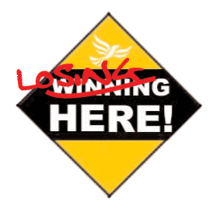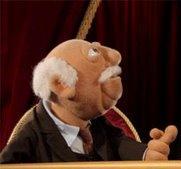Over on
ConservativeHome: CentreRight, Daniel Hamilton has posted
How would you reform the House of Lords?. This issue has rather gone off the boil for the time being, but cannot evade resolution forever. And I think it's about time the Conservative Party took a lead in constitutional reform, rather than adopting a "no change at all" position at the time and then having no ability to influence the outcome, then being unable to do anything more than complain at the result (see for instance Scottish devolution).
Last year I wrote a series of posts
on second chambers looking at some of the upper houses in other parliamentary democracies to see if there is anything in them that could be copied. Some good ideas stand out, but what is also clear is that different countries use the second chamber for different things, which comes to the nub of the problem.
Fundamentally there are three questions about reform of the House of the Lords that need to be answered in order. They are:
1). What role in the system should the second chamber play?
2). What powers should it have?
3). How should it be composed?
Unfortunately nearly everyone dives on the third question and then spends forever debating such minutiae as the ratio of elected to appointed members, voting systems and constituencies rather than grappling with the first two.
But it is in answering the first two that will lead to the answer for the third. Now many upper houses around the world are part of federal systems, with the upper house designed as a states's rights chamber, to mirror the lower house reflecting the people. This is true of the
Senate of Australia and the
Bundesrat of Germany, and for that matter also of the
Senate of Canada and the
Rajya Sabha of India. Now this takes us into the difficult point that in the UK power is not evenly devolved and none of the four parts has the same level of power. This is not a federal country and so does not need a federal upper house.
Similarly it is often suggested that the upper house should be composed of representatives from local government (indeed Daniel suggests this in his own post). But does local government, primarily an administrative matter, really need such a direct link to the legislature?
The House of Lords may once have been a house to represent a key political interest group (the great landowners) but it has evolved into a chamber that primarily scrutinises and amends legislation, occasionally acting as a check on the powers of the lower house. This should remain the role post reform, answering the first question.
So what powers should it have? The first, and easiest to address, are those over supply (or the Budget). For a parliamentary democracy to function effectively there must be a single body that decides the government, including the crucial power of access to revenue. Anyone familiar with the
1975 Australian constitutional crisis will be aware of the mess that arose because both houses had power over the budget, resulting in a direct clash with the constitutional principle that governments live and die in the lower house. (One could, I suppose, give the power to a joint sitting of the two houses but it would have to be immediate.) It's notable that most upper houses founded in Westminster system democracies since 1911 have tended to have the supply powers restricted in precisely this way.
I would also have an assumption built in that if the two houses conflict then ultimately at the end of any dispute resolution procedure then either the overwhelming will of the Commons should prevail over the upper or the electorate should settle the matter. This will take more than a mere one year delay as presently in the Parliament Act. The starting point should be that if a bill can't get through the upper house it either dies or a special mechanism must be invoked that requires a more substantial threshold than a normal majority in the lower house to override it. Perhaps the Commons should have a 2/3 majority to override a bill failing in the upper house, or there should be a joint sitting (with the numbers in the upper house always deliberately smaller than the Commons) or perhaps each house can have the power to refer a bill directly to the people if the other house will not pass it. (After all if we're allowing the Commons the chance to get its way over the upper house, why not the reverse?) We may also give the upper house extra powers in particular areas. Currently it has an absolute veto over postponing general elections. What about giving it an absolute veto over all matters affecting the Commons, including voting systems, raising MPs's salaries and so forth? I admit this section is not as fully thought through as it could be, but there are several clear possibilities.
Finally we come to the composition. Again there's an easy starting point followed by a quick descent into murk. But it's notable that many upper houses around the world have staggered elections, so that the entire chamber is not elected in one go. This is a useful check against a sudden convulsion in the Commons and allows for the upper house to take a longer term view. Beyond this it gets murky.
As I said above, I don't think the upper house should be converted into a states's rights or local councils's chamber, so filling it with nominees from elsewhere in the system isn't in line with this. And since it wouldn't be aiming to represent a particular element I don't think a deliberate malapportionment such as an equal number of members per county (where London and the Isle of Wight would have parity!) would work. But what about an elected chamber that transcended the limitations of geographic representation?
It is here that I must acknowledge inspiration from the two Irish Seanads - the
Irish Free State Seanad and the present
Seanad Éireann. The former had a country wide election that resulted in some Senators being elected who represented particular groups in society who would not normally have been well represented in a constituency based system. The latter has both members elected by university graduates and members representing
"Vocational Panels" that seek to represent the key strands in Irish society (Administration, Agriculture, Culture & Education, Labour and Industry & Commerce). Now the Vocational Panels have come in for criticism as being elected by party politicians and producing party politicians, but the university seats routinely elect independents and show a willingness amongst voters to not let the upper house be a total partisan walk-over.
Now a UK wide election for even eighty upper house members could get very messy if using a single constituency. But what if for the upper house voters could register as a member of one of a series of groupings, with each grouping electing a number of upper house members by postal vote using the Single Transferable Vote? (The concept of separate electoral rolls with choice as to which one is one is common - perhaps the best known example in the Anglosphere are the
Māori seats in the Parliament of New Zealand.) A mechanism could be established to monitor the individual rolls and allow for the addition and removal of groupings as deemed necessary. Voters could vote by post to elect a proportion - say a third at a time - of the upper house. The nature of the upper house seats could encourage candidacies and voting on a different scale from the Commons, breaking the partisan deadlock and encouraging independent candidates with suitable backgrounds. And UK wide elections could help represent groups in society who frequently find they are too scattered and divided to be listened to in the Commons.
This would be a radical change for the upper house (we couldn't really carry on calling it "the Lords" so I guess "Senate" is as good a working title as any) but one that has very few elements that have not been tried and tested before. Maybe this could be the way forward...





